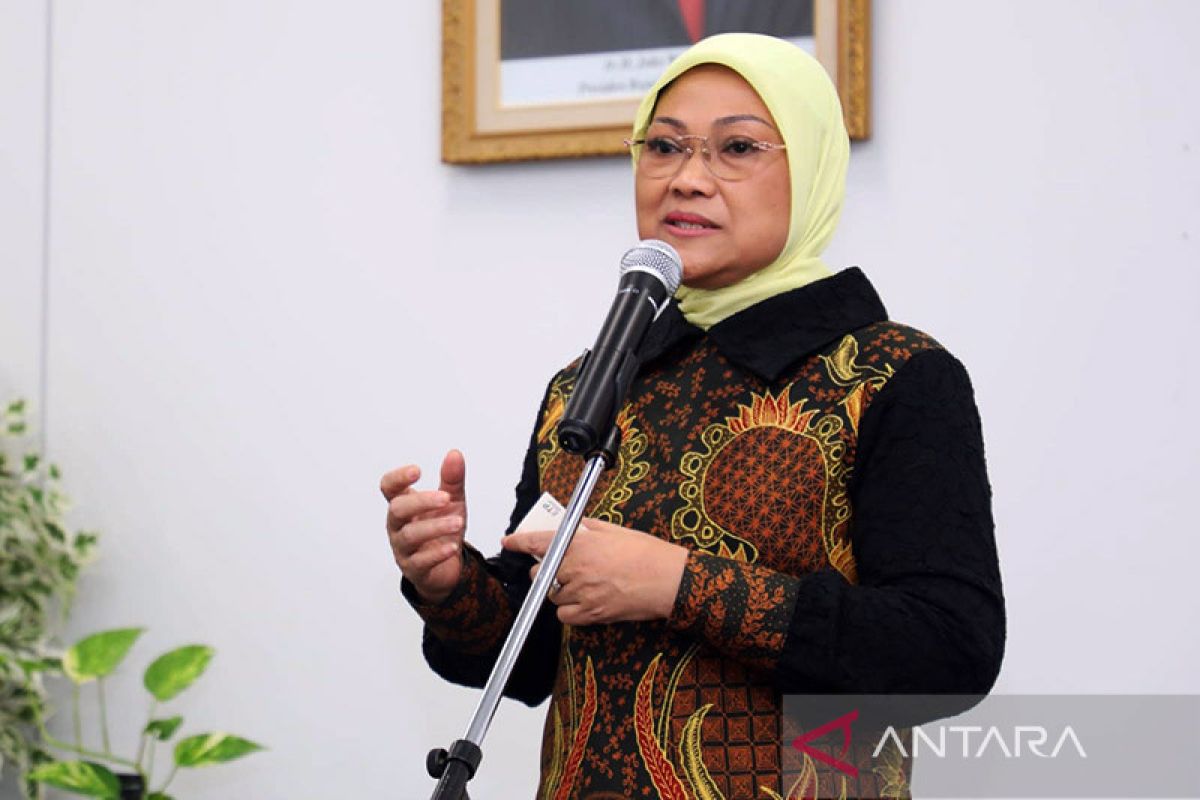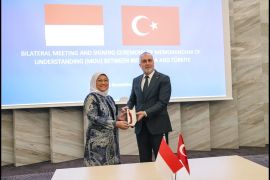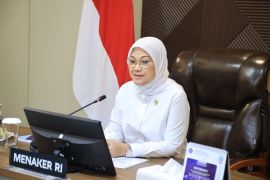One of the policies issued by the government to maintain workers' welfare has been the minimum salary provision, which was determined at year-end and will take effect in the first month of the next year.
In early 2022, Indonesia, which was still experiencing the economic impact of COVID-19, faced conflict over the determination of the provincial minimum wage (UMP) for Jakarta. The problem started when the Jakarta provincial government revised the 2022 UMP after the deadline of setting the UMP on November 21, 2021.
The Jakarta government initially set the increase in 2022 UMP, compared to the 2021 UMP, at Rp37 thousand. The decision was then revised with the issuance of gubernatorial decree No. 1517/2021 on December 16, 2021, which set the minimum wage increase at Rp225 thousand.
The first increase was decided based on the formula provided by Government Regulation (PP) No. 36 of 2021 concerning wages, which is a bylaw of the Job Creation Law.
The Indonesian Employers Association (Apindo) challenged the gubernatorial decree in court and won. With the overturn of the decree by the Jakarta State Administrative Court (PTUN), the Jakarta UMP 2022 remained in the range of Rp4.5 million.
Related news: Jakarta issues governor's decree on Rp4.9-million minimum monthly wage
However, once the outcry against the 2022 UMP ended, the issue over the 2023 UMP began. The Manpower Ministry issued Ministerial Regulation No. 18 of 2022 concerning the determination of the 2023 minimum wage as the basis for regional heads to decide on the minimum wage increase in their respective regions.
Under the regulation, the determination of UMP and the district/city minimum wage (UMK) in 2023 would not be based on PP No.36 of 2021.
There are several differences between the ministerial regulation and PP No.36/2021. There is also a provision that states that the 2023 UMP increase cannot be more than 10 percent.
A total of 34 provinces have set the 2023 UMP, as the deadline to set it was November 28, 2022, and December 7 for UMK.
Based on the formula provided in the ministerial regulation, the average increase in UMP 2023 has been 7.35 percent. According to data provided by the Ministry of Manpower, West Sumatra has seen the highest increase in UMP at 9.15 percent. Thus, the UMP will increase from Rp2,512,539 in 2022 to Rp2,742,476 in 2023 in the province.
Meanwhile, the lowest increase has been recorded in North Maluku at 4 percent, with the UMP set to rise from Rp2,862,231 in 2022 to Rp2,976,720 in 2023.
The UMP determination using Regulation No. 18 of 2022 is expected to help maintain people's purchasing power, Manpower Minister Ida Fauziyah said in a statement.
The reason is that the formula provided in PP No. 36 of 2021 would not have been able to accommodate the current socioeconomic conditions of the community.
Apindo along with nine other employers' associations filed a lawsuit against Ministerial Regulation No. 18 of 2022 with the Supreme Court. As of December 26, the lawsuit was still in progress.
Apindo has argued that the regulation can result in lay-offs and reduce job opportunities. It has asked that the minimum wage determination be redone using PP No.36 of 2021.
Related news: Minimum wage regulation caters to workers, employers' interests
However, the government's move to issue special rules for the determination of the 2023 UMP and UMK was lauded by manpower observer Tadjuddin Noer Effendi who called it a good step compared to the 2022 wage increase.
The increase in UMP 2023 is, on average, above the inflation of 5.42 percent in November 2022, Effendi pointed out.
"(The increase) still follows the inflation, there is still a percentage which maintains the value of workers' wages," he explained.
The Indonesian Ombudsman also spoke out regarding the 2023 UMP determination based on the ministerial regulation.
A member of the Indonesian Ombudsman, Robert Na Endi Jaweng, said that his party had urged the government to keep involving manpower stakeholders or key actors in the discussion of its policies.
This can ensure support during the policies' implementation, especially policies that have an impact on many parties.
Jaweng highlighted that the "tug-of-war" between labor stakeholders could be detrimental to workers, given that there are still differences of opinion regarding policies, including the 2023 UMP determination.
Business and legal certainty can keep the labor sector conducive amid the potential for an economic recession due to several factors, including the Russo-Ukrainian War.
Amid the outcry over the UMP and UMK, Minister Fauziyah reiterated that the minimum wage that has been determined will only apply to workers and laborers whose length of employment has been less than one year.
For workers whose employment period has been more than one year, the wage will need to be determined by considering their productivity and using the wage scale.
Fauziyah highlighted the importance of implementing the structure and scale of wages at companies, considering that it is mandated by law.
The manifestation of good industrial relations can be seen in the company's appreciation for its productive workers and laborers through the wages they receive.
With such a wage system, it is hoped that workers will continue to increase their productivity and therefore, get wages that can help them and their families prosper.
The productivity-based wage system is expected to result in effective and fair wages to encourage the success of companies and the welfare of Indonesian workers.
Related news: Jakarta's minimum wage increase for community's good: Patria
Related news: Baswedan engages with protesting workers in front of City Hall
Editor: Suharto
Copyright © ANTARA 2022












